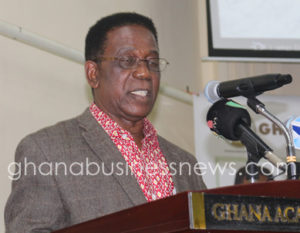Government expands VOTEC to strengthen education and industry

The expansion of Vocational/Technical (VOTEC) skills training opportunities at both Secondary and tertiary levels has been one of the government’s strategies to strengthen the linkage between education and industry.
Professor Kwesi Yankah, a Minister of State in-charge of tertiary education, said in Sunyani during an induction ceremony of Professor Kwadwo Adinkrah-Appiah as the first substantive Vice-Chancellor (VC) of Sunyani Technical University (STU).
He noted that skills training development in VOTEC education was the pivotal factor that would give opportunities to the youth to be masters of their own destinies.
It would help them deploy their skills to employ themselves and others to transform Africa’s economy and reduce unemployment.
Prof. Yankah said Africa’s educational system has low capacity in skills development and that was the basis of the continent’s inability to generate knowledge to facilitate skills development among both employees and jobless people.
The practical orientation of VOTEC training creates the primary avenue for development of skills for business and industry, which he said in Ghanaian context, government was creating such opportunities at the secondary level to feed technical education at the tertiary level.
Prof. Yankah urged management of STU to develop assessment procedures and cultures of academic progression and programmes and disciplines in keeping with traditions of technical universities.
He also suggested the institution must pioneer the development of a tried and tested template in nurturing and harnessing expertise in engineering resources within its environment since the government was committed and prepared to support such initiatives and their fullest realisation.
In a post-induction address, Prof. Adinkra-Appiah, who is an Engineer, spelt out his strategies. which he intended to pursue to impart entrepreneurial skills to graduates.
They include; accelerated infrastructural development, improved resource mobilisation and management, human resource development, deepening research and innovation and building world-class faculties with market-driven programmes.
He said his ultimate goal was to build a top-notch technical university that provides skills-based education and produce graduates ready for direct employment and able to set up their own businesses.
He also aimed to help produce a well-motivated human resource base and an enhanced academic enrolment.
He appealed to the University Council, the Academic Board, Convocation, Faculty and staff, students, industrial partners and the public to offer the necessary support to the University to play its role in national reconstruction and global sustainable development.
Source: GNA
